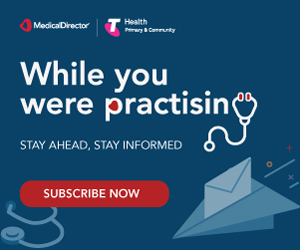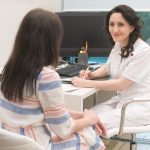18 Reliable sources of health information
We are proactively seeking reliable health information online, and have a genuine appetite for quality information written by medical experts, a new report found. So where can we find trusted health websites and resources?
Our appetite for turning to quality health websites
According to MedicalDirector’s recent report, Dr Google, How Self-Diagnosis Impacts Clinical Care, a third of Australians (33%) would trust Google more when searching for health issues if they had resources developed by doctors providing information on the most common medical conditions. In fact, the most trusted sources when Googling medical symptoms are health websites such as WebMD (42%), followed by government sites (24%).
And it’s important to note that being proactive about one’s health and searching for answers is not a bad thing. In fact, a recent study published in the Medical Journal of Australia found consulting ‘Dr Google’ before presenting at the emergency department could improve interactions between patients and their treating physician.
However, it is the quality and scope of information that comes up in a search, and how that information is processed by a worried patient, that we need to be mindful of in the age of Doctor Google.
Empowering health outcomes with the right information
According to Dr Middleton, there’s a wealth of good quality, evidence-based information online – but it’s a matter of knowing about where to look. At the same time, there should be conversations between health practitioners and patients about how technology can work hand-in-glove with the consult, to achieve the best outcomes.
In fact the research, which recently gained significant media coverage, including being featured on Channel Ten, Channel Seven, Sky News, Sunrise, The Daily Telegraph and A Current Affair, found 38% of Australians think their doctor could improve their consultation by providing a fact sheet explaining their condition and how better to manage it.
“That’s why it’s important for more GPs to know about patient information resources, and be proactive in giving them to the patient. There’s plenty of information that is easily accessible, evidence-based, and from trusted sources. Most are easily understandable with concise language,” Dr Middleton said.
“What I would like is more quality-based resources, and Google can be a way for Australians to improve their health knowledge overall, and a good adjunct to a doctor’s diagnosis and treatment,” she added. “It becomes a problem when it is used instead of seeking doctor’s advice, It has its place, and as doctors, we need to understand that, but people need to seek our opinions first.”
Reliable health information, what is available?
The following 18 sites are sources of trusted, reliable health information as recommended and trusted by doctors*:
- Access Medicine
- AusDI
- Better Health Channel
- BMJ Best Practice
- Department of Health
- Doctorportal
- DynaMed Plus
- Health&
- Healthdirect
- Healthily
- Healthshare – Fact Sheets
- IBM Micromedex
- John Murtagh Patient Education
- Natural Medicines
- RACGP – The John Murtagh Library
- Therapeutic Guidelines
- Unity Health
- UpToDate
*Source: Meeting Patient Expectations, Now and in the Future, Presentation by MedicalDirector’s Chief Clinical Advisor and GP, Dr Charlotte Middleton at the General Practice Conference & Exhibition (GPCE) Brisbane and Melbourne in 2018.
To access MedicalDirector’s FREE report, Dr Google, How Self-Diagnosis Impacts Clinical Care, click here.









